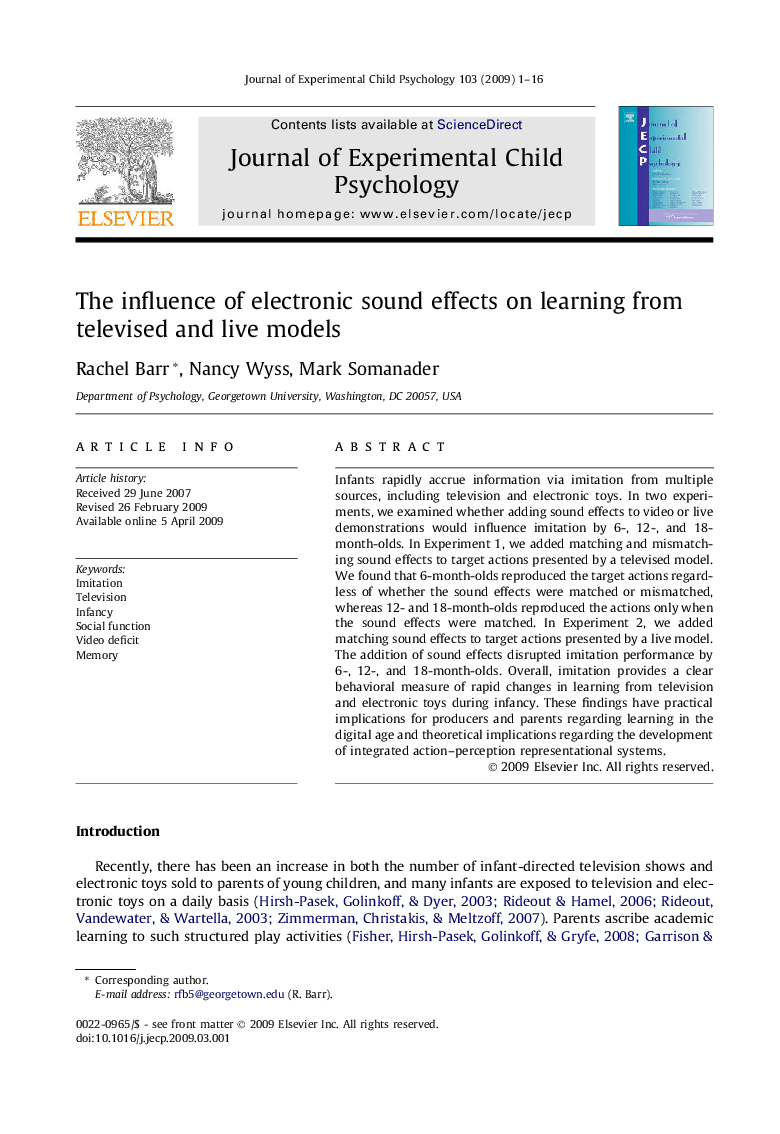| Article ID | Journal | Published Year | Pages | File Type |
|---|---|---|---|---|
| 918690 | Journal of Experimental Child Psychology | 2009 | 16 Pages |
Infants rapidly accrue information via imitation from multiple sources, including television and electronic toys. In two experiments, we examined whether adding sound effects to video or live demonstrations would influence imitation by 6-, 12-, and 18-month-olds. In Experiment 1, we added matching and mismatching sound effects to target actions presented by a televised model. We found that 6-month-olds reproduced the target actions regardless of whether the sound effects were matched or mismatched, whereas 12- and 18-month-olds reproduced the actions only when the sound effects were matched. In Experiment 2, we added matching sound effects to target actions presented by a live model. The addition of sound effects disrupted imitation performance by 6-, 12-, and 18-month-olds. Overall, imitation provides a clear behavioral measure of rapid changes in learning from television and electronic toys during infancy. These findings have practical implications for producers and parents regarding learning in the digital age and theoretical implications regarding the development of integrated action–perception representational systems.
